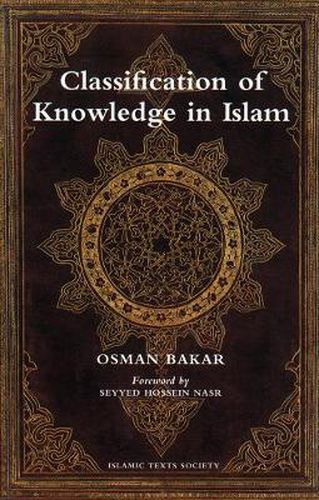Readings Newsletter
Become a Readings Member to make your shopping experience even easier.
Sign in or sign up for free!
You’re not far away from qualifying for FREE standard shipping within Australia
You’ve qualified for FREE standard shipping within Australia
The cart is loading…






The classification of knowledge is a recurring theme in Islamic scholarship. Successive generations of Muslim scholars, from al-Kindi in the ninth century to Shah Waliallah of Delhi in the eighteenth century, have devoted considerable efforts to the exposition of this theme. The lives and the ideas of the three thinkers discussed in Classification of Knowledge in Islam - al-Farabi (870-950AD), al-Ghazzali (1058-1111AD) and Qutb al-Din al-Shirazi (1236-1311AD) - cover the pivotal period of Islamic history from the first flourishing of the philosophical sciences to the sacking of Baghdad by the Mongols. In addition, each of these three thinkers was either a founder or an eminent representative of a major intellectual school in Islam. Al-Farabi was the founder and one of the most prominent representatives of the mashshai (Peripatetic) school of philosopher-scientists. Al-Ghazzali is still recognised as the most famous theologian/sufi of Islam. Qutb al-Din al-Shirazi represents the ishraqi (Illuminationists) school of philosophy. Prof. Osman Bakars Classification of Knowledge in Islam is the first work of its kind in the English language and is based on extensive scholarships and reference to the original texts.
$9.00 standard shipping within Australia
FREE standard shipping within Australia for orders over $100.00
Express & International shipping calculated at checkout
The classification of knowledge is a recurring theme in Islamic scholarship. Successive generations of Muslim scholars, from al-Kindi in the ninth century to Shah Waliallah of Delhi in the eighteenth century, have devoted considerable efforts to the exposition of this theme. The lives and the ideas of the three thinkers discussed in Classification of Knowledge in Islam - al-Farabi (870-950AD), al-Ghazzali (1058-1111AD) and Qutb al-Din al-Shirazi (1236-1311AD) - cover the pivotal period of Islamic history from the first flourishing of the philosophical sciences to the sacking of Baghdad by the Mongols. In addition, each of these three thinkers was either a founder or an eminent representative of a major intellectual school in Islam. Al-Farabi was the founder and one of the most prominent representatives of the mashshai (Peripatetic) school of philosopher-scientists. Al-Ghazzali is still recognised as the most famous theologian/sufi of Islam. Qutb al-Din al-Shirazi represents the ishraqi (Illuminationists) school of philosophy. Prof. Osman Bakars Classification of Knowledge in Islam is the first work of its kind in the English language and is based on extensive scholarships and reference to the original texts.